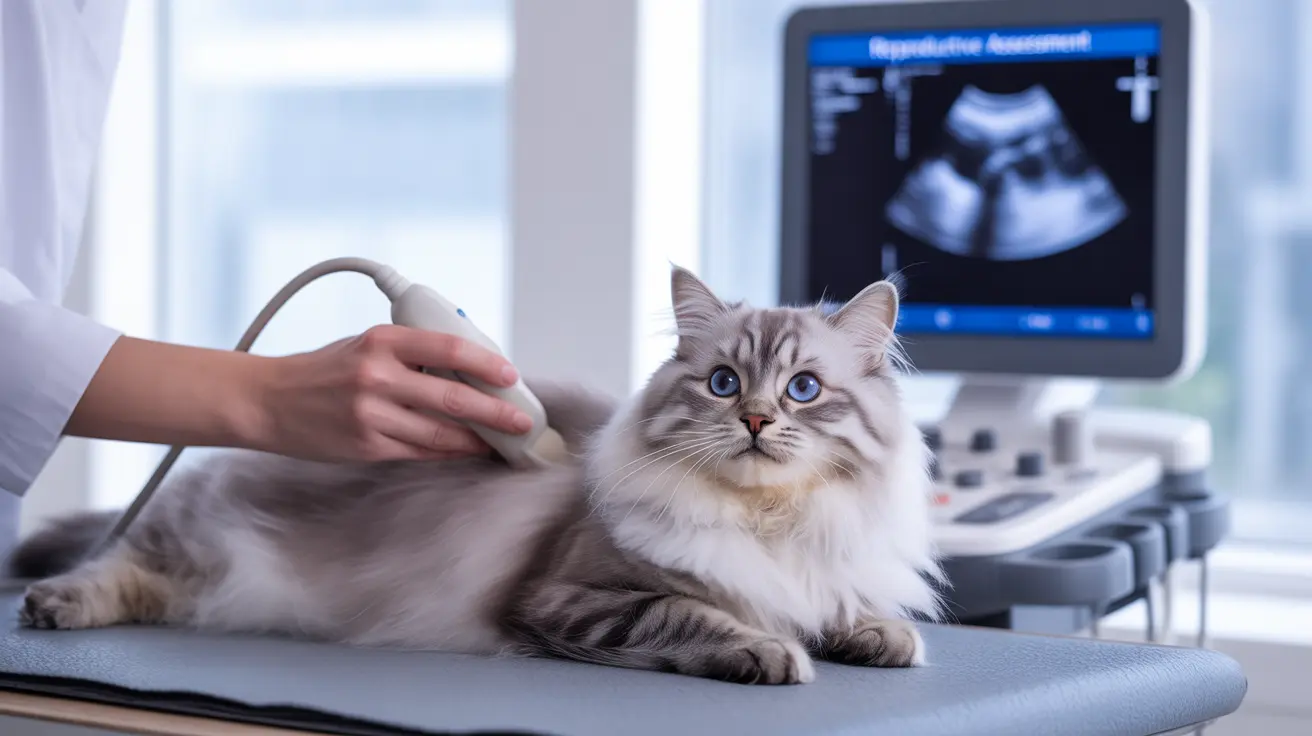Many cat owners and breeders are surprised to learn that cats can indeed be infertile. Female cats, known as queens, may experience various fertility challenges that prevent successful reproduction despite having regular opportunities to mate. Understanding these fertility issues is crucial for both professional breeders and pet owners considering breeding their cats.
In this comprehensive guide, we'll explore the causes, signs, and treatment options for feline infertility, helping you better understand this complex reproductive issue affecting our feline companions.
Common Causes of Feline Infertility
Hormonal and Cycling Issues
Female cats can experience infertility due to irregular heat cycles or complete failure to cycle. This often occurs due to hormonal imbalances, insufficient exposure to daylight (cats need at least 14 hours of light daily to maintain normal cycles), or genetic predispositions affecting reproductive development.
Reproductive Tract Abnormalities
Physical issues with the reproductive system can prevent successful breeding. These may include congenital defects, scarring from previous injuries, or developmental abnormalities affecting the uterus or ovaries. Such conditions often require veterinary intervention for diagnosis and treatment.
Health Conditions Affecting Fertility
Infections and Diseases
Various infections can impact a cat's fertility, including:
- Feline Leukemia Virus (FeLV)
- Feline Immunodeficiency Virus (FIV)
- Toxoplasmosis
- Bacterial infections leading to pyometra
- Viral infections affecting reproductive health
Uterine Conditions
Several uterine-specific conditions can cause infertility:
- Cystic endometrial hyperplasia
- Chronic inflammation
- Uterine scarring
- Tumors or cysts
Environmental and Management Factors
Nutrition and Stress
Poor nutrition and environmental stress can significantly impact a cat's fertility. Ensuring proper diet and creating a calm, stable environment are essential for maintaining reproductive health. Cats under stress may experience irregular cycles or fail to conceive even when mated appropriately.
Breeding Management
Improper breeding practices can lead to perceived infertility. This includes:
- Incorrect timing of mating attempts
- Insufficient number of breeding attempts
- Poor choice of breeding partners
- Inadequate environmental conditions
Diagnosis and Treatment Options
Veterinary Assessment
A thorough veterinary examination is crucial for diagnosing infertility. This typically includes:
- Physical examination
- Blood tests for hormone levels
- Screening for infectious diseases
- Ultrasound or X-ray imaging
- Reproductive tract evaluation
Treatment Approaches
Treatment options vary based on the underlying cause and may include:
- Hormonal therapy
- Antibiotics for infections
- Surgical intervention when necessary
- Environmental modifications
- Nutritional supplementation
Frequently Asked Questions
Can cats be infertile, and what are the most common causes in female cats?
Yes, cats can be infertile. The most common causes include hormonal imbalances, reproductive tract abnormalities, infections, and environmental factors like stress or poor nutrition.
What are the signs that my female cat is infertile or having trouble reproducing?
Signs include irregular or absent heat cycles, failure to conceive after multiple breeding attempts, pregnancy loss, and abnormal behavioral changes during breeding season.
How can I tell if my cat's inability to get pregnant is due to an infection or hormonal problem?
Only a veterinarian can make this determination through proper testing, including blood work, hormone analysis, and screening for infections. Physical symptoms like discharge or fever may indicate infection.
What should I do if my female cat isn't going into heat or has irregular cycles?
Consult a veterinarian for evaluation. They can check for underlying health issues and may recommend hormone testing or environmental modifications, such as adjusting light exposure.
Are there ways to improve my cat's fertility through diet, lighting, or breeding practices?
Yes, fertility can often be improved by ensuring proper nutrition, maintaining 14+ hours of daily light exposure, reducing stress, and following appropriate breeding practices with timing and frequency of mating attempts.
Conclusion
While feline infertility can be challenging to address, understanding its causes and seeking proper veterinary care are essential steps toward successful treatment. Whether you're a professional breeder or a concerned pet owner, working closely with your veterinarian will help determine the best course of action for your cat's specific situation.






